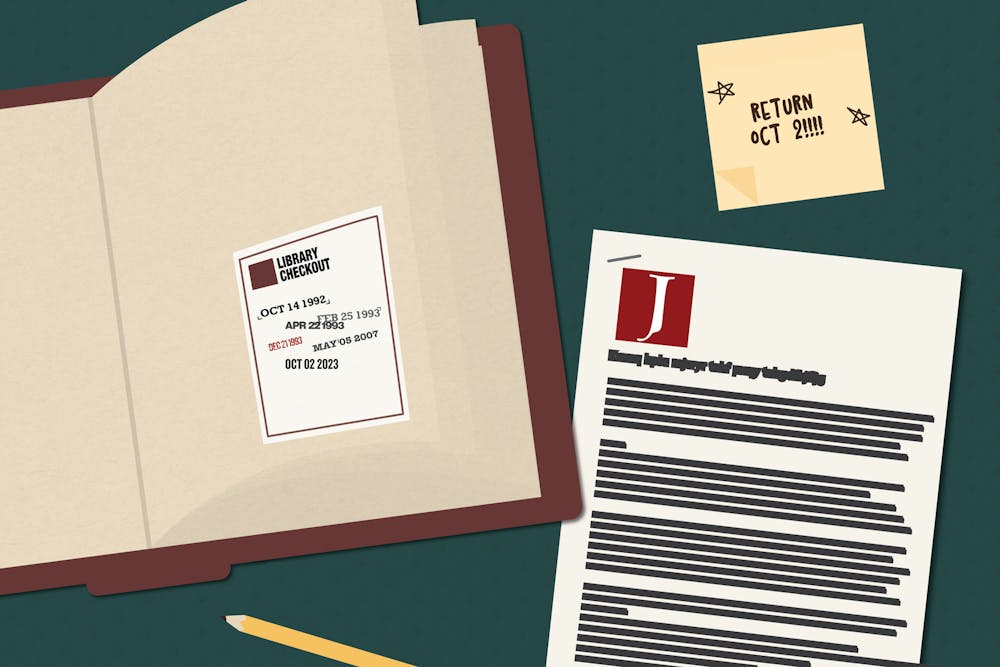As a student here for almost four years, I still struggle to utilize all the services the Thomas Cooper Library has to offer. I mostly just go to the library to find a quiet place to study or to get a quick printout.
It wasn't until last year, however, when a professor suggested that I talk to a librarian about finding resources for my research paper that I became aware of its multiple resources. The conversation made the research process a whole lot easier for me.
Thomas Cooper Library offers a myriad of resources, including complete textbook access, research materials, professional help and technology services. Despite the library's many resources, many students remain unaware of these benefits.
Here are some ways that you can use the library to its fullest potential.
Accessing textbooks
USC has an online catalog available on the University Libraries website that is accessible from any device. Through this catalog, students can search for any books, e-books, articles and DVDs that may be available in the library at any time. In addition, students can go to Course Reserves, which includes materials reserved by professors so that their students can easily access certain corresponding course texts.
Students can be loaned these items for up to two hours. If they need to use these resources for longer, they can also request copies of printed articles and books. This makes it so much easier for students to access textbooks when they need to do a quick assignment instead of buying the book for the full price from the bookstore or online.
Research database and subscriptions
The library offers multiple different databases where students have complete access to various research articles and journals. There are filters that can narrow down searches and make the research process more convenient. Students can sort sources alphabetically or by subject, content and vendor. Undergraduate and graduate students also have unlimited access to The New York Times and limited access to the archives of other outlets, such as The State.
Thomas Cooper Library also has librarians that are specialized in different subjects, such as English, history and engineering, who can find specific information and materials your paper or thesis. These special librarians are available every day through Zoom or in the offices located on the main level of the library. The university also has primary librarians that help with more generalized needs and are available every day in the main-level offices.
Next time you are struggling with what to write your paper for class or project on, take advantage of the knowledge that these librarians and databases carry.
Professional help
The Career Center on the fifth floor runs resume workshops and conducts field-specific mock interviews to sharpen student's interview skills. The career center also helps students look for jobs and internships through its career fairs and inform you about available positions through its online platform, Handshake. The center also helps students explore different graduate schools after college through its pre-professional advising.
The Center for Teaching Excellence, also located on the fifth floor, helps education undergraduate students, graduate teaching assistants and university faculty to develop better teaching skills and learn about different teaching models.
Each of these resources help set students up for life after college and makes sure they have all the information and resources they need to succeed in their chosen field.
Technology services
Students can also borrow technology from the library, such as laptops, cameras and chargers, by booking these items through the online portal and obtaining them at the Circulation Desk on the main floor. The library also provides access to specialized software, such as data visualization programs, multiple programming languages and spatial visualization programs, in the DataLab on the fifth floor to help support data analysis related to university research projects.
Students can also create multimedia projects by reserving a space in the Library Production Studio to have access to audio and video studios. Anyone interested can reserve these studios for up to two hours per day or a total of 10 hours per week.
Through the library, students have access to equipment and technology that they probably do not own. Exposure to this kind of technology will help aid students with any projects that they want to pursue and make their academic goals more achievable.

